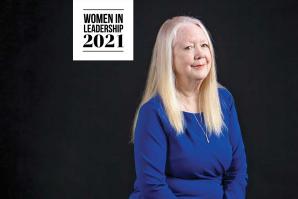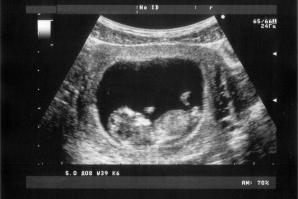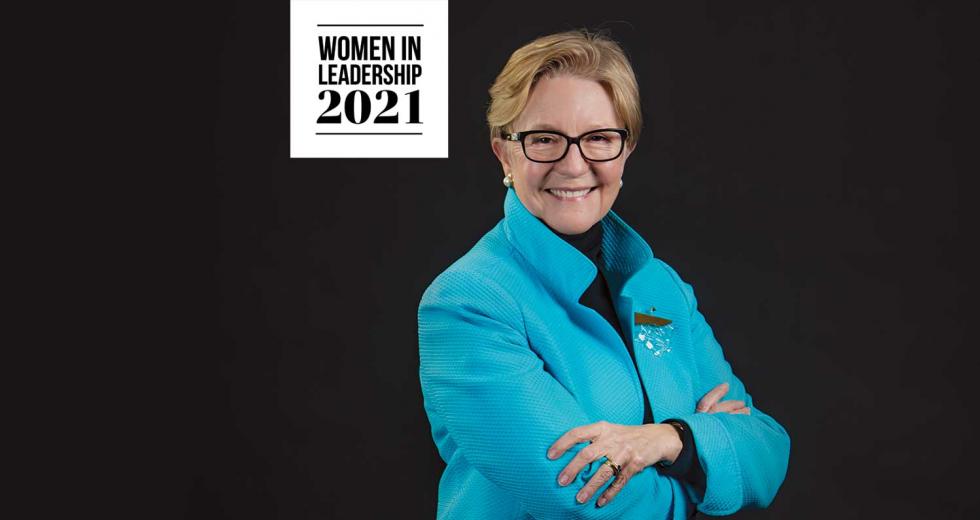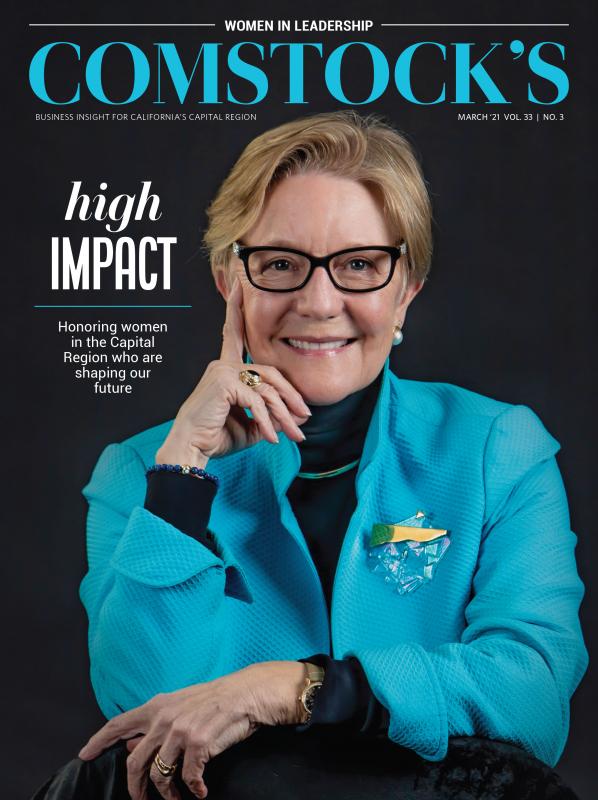Dr. Diana Farmer
Chair, Department of Surgery, UC Davis Health
Dr. Diana Farmer was driving across the country, from Wellesley College in Massachusetts to Seattle, to interview for the Rhodes Scholarship in 1976 when a car accident sidelined her goal to be among the first women recipients of the prestigious fellowship. While receiving care for injuries from the car accident, she grew interested in medical decision-making, and the experience propelled Farmer to shift from entering a career in marine biology to studying medicine. She eventually became another type of pioneer — the world’s first woman fetal surgeon.
“Serendipity has always played a role in my career and taking advantage of new opportunities and being willing to change direction,” she says. Farmer, who is the chair of UC Davis Health’s Department of Surgery, is internationally acclaimed for her expertise in surgery on fetuses in the womb to repair birth defects and on babies shortly after birth, saving countless infant lives and improving quality of life for many others.
Farmer grew up in Chicago and Idaho, the daughter of a city girl from San Francisco and a rural boy from a cattle ranch in Nebraska. She graduated from Wellesley College with a dual degree in marine studies and molecular biology in 1977. She completed her medical degree and internship at the University of Washington in Seattle, her general surgery residency at UC San Francisco and pediatric surgical residency at Children’s Hospital of Michigan.
UC Davis Health recruited Farmer from her position as chief of children’s surgery at UCSF to become chair of its Department of Surgery in 2011. She oversees a team of more than 250 faculty, post-doctoral fellows, residents, students and other staff in a department that handles oncology, cardiac, transplant, vascular, gastrointestinal and trauma surgery, and many other surgical specialties.
As a surgeon, Farmer is most known for operations on fetuses with spina bifida, a congenital condition that occurs when the spine and spinal cord don’t form properly, affecting mobility. While in-utero surgery can improve this condition, there is still room for advancement. In January, UC Davis Health embarked on a clinical trial using a novel stem cell therapy developed at UC Davis to repair damaged neural tissue “in the hopes that we will be able to make all of those children walk,” she says.
“Don’t let a setback get you discouraged. There are great opportunities in the unexpected. Serendipity and unexpected opportunities can often open doors that you would never have imagined.”
Working at an academic medical center has allowed Farmer to continue her research — she has authored more than 100 peer-reviewed articles — while also treating patients and bringing technological advancements to the Capital Region. “It is true that when academic medical centers raise the bar for either a certain technique or quality, it raises the bar for the whole community. … I’ve been able to see that happen in Sacramento since I came here,” Farmer says, giving the example of how appendicitis was handled — the “old-fashioned open way, bigger incisions” versus the advanced technology for minimally invasive surgery she brought to UC Davis, which is now used by medical centers across Sacramento.
As a leader, Farmer considers herself authentic, passionate and committed to excellence, and the coronavirus pandemic heightened the need for strong leadership within medical institutions. “We’ve all been asked to get our teams to do more, to sacrifice and take greater risks,” she says. “Helping to lead those teams and to keep people’s morale high has been one of the big challenges of recent times, and I certainly learned that you have to lead by example. We have to be attentive to the real needs that your teams are going through, the real struggles, and be responsive, be available and be empathetic.”
While a postgraduate award to study at the University of Oxford would have been a dream fulfilled, Farmer looks back on an unfortunate incident as leading to her life’s work. “It would have been amazing to have been one of the first women Rhodes Scholars in the country, in the world, yet (the accident) changed my trajectory in the most wonderful way,” she says. “I’ve had a fabulous career as a physician and as a scientist, and I wouldn’t have wanted to change that at all.”
–
Get all the profiles in our Women in Leadership issue delivered to your inbox: Subscribe to the Comstock’s newsletter today!
Recommended For You

Women in Leadership: Melissa Brown
Our annual salute to extraordinary women who are shaping our future
Melissa Brown has been a professor at McGeorge School of Law since 2008 and director of its legal clinics since 2013.

We’ve Certainly Come a Long Way
Comstock’s president and publisher considers the ways women have been leaders throughout history.

Opportunity of a Lifetime
Fetal surgeons at UC Davis are repairing birth defects in babies — before their patients are even born
Too many pregnant mothers know the feeling of horror: The ultrasound reveals something wrong. Perhaps it’s nothing. But maybe it’s life-threatening, a disease or a disability. Maybe it’s the unthinkable. For hundreds of thousands of years, the unthinkable — babies doomed to die or develop impairments before drawing their first breath — meant only tragedy and heartache. Now there is hope.

Welcome to the Future
Medical breakthroughs are close to home
Dramatic medical and technological advancements always grab my attention. They cause me to pause and contemplate how incredible the human mind can be. We create such remarkable things. But our achievements and creativity don’t have to be as groundbreaking as fetal surgery in order to influence society.





Comments
My husband and I loved meeting Dr. Farmer last year at the Chancellor’s box at a UCDavis football game. We are happy to donate to her projects.